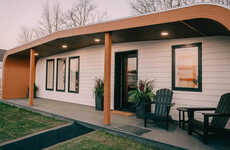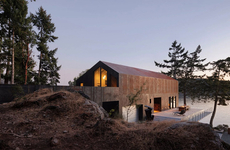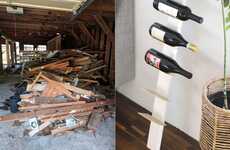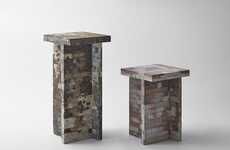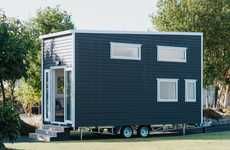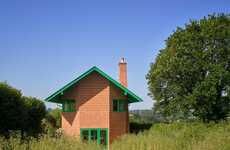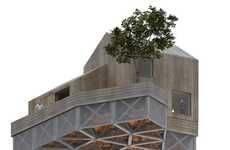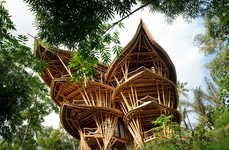
The Waste House is Entirely Made Out of Rubbish
Vasiliki Marapas — June 19, 2014 — Eco
References: bbm-architects & dezeen
Located on the University of Brighton campus, the 'Waste House' was designed by Sussex studio BBM architects in conjunction with several undergraduate students.
The house, which is entirely constructed out of waste products, will serve as a research and design workshop space for the University's Faculty of Arts. The structure was physically put together by apprentices from Mears, a social housing maintenance provider, and other volunteers.
With walls that are made from used carpet tiles and insulated with junk, the house is intended to showcase the appropriate use for discarded materials. BBM director Duncan Baker-Brown explains, "It's about proving that you can build something with other people's stuff, and that you can make a permanent building out of rubbish."
The house, which is entirely constructed out of waste products, will serve as a research and design workshop space for the University's Faculty of Arts. The structure was physically put together by apprentices from Mears, a social housing maintenance provider, and other volunteers.
With walls that are made from used carpet tiles and insulated with junk, the house is intended to showcase the appropriate use for discarded materials. BBM director Duncan Baker-Brown explains, "It's about proving that you can build something with other people's stuff, and that you can make a permanent building out of rubbish."
Trend Themes
1. Sustainable Construction - Exploring the use of waste products in construction projects to reduce environmental impact and promote resource efficiency.
2. Circular Economy - Embracing the concept of reusing and repurposing waste materials to create new products and minimize waste generation.
3. Collaborative Design - Engaging multi-disciplinary teams and volunteers to work together in creating innovative and sustainable structures.
Industry Implications
1. Construction - Opportunity for construction companies to adopt sustainable practices by utilizing waste materials and innovating in sustainable construction techniques.
2. Waste Management - Potential for waste management companies to develop systems and processes to identify valuable waste materials for construction purposes, supporting the circular economy.
3. Education - The trend of constructing buildings from recycled waste provides opportunities for educational institutions to incorporate hands-on sustainability projects, promoting environmental consciousness and resourcefulness.
5.5
Score
Popularity
Activity
Freshness



